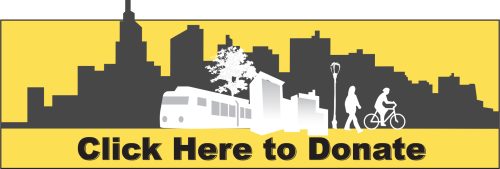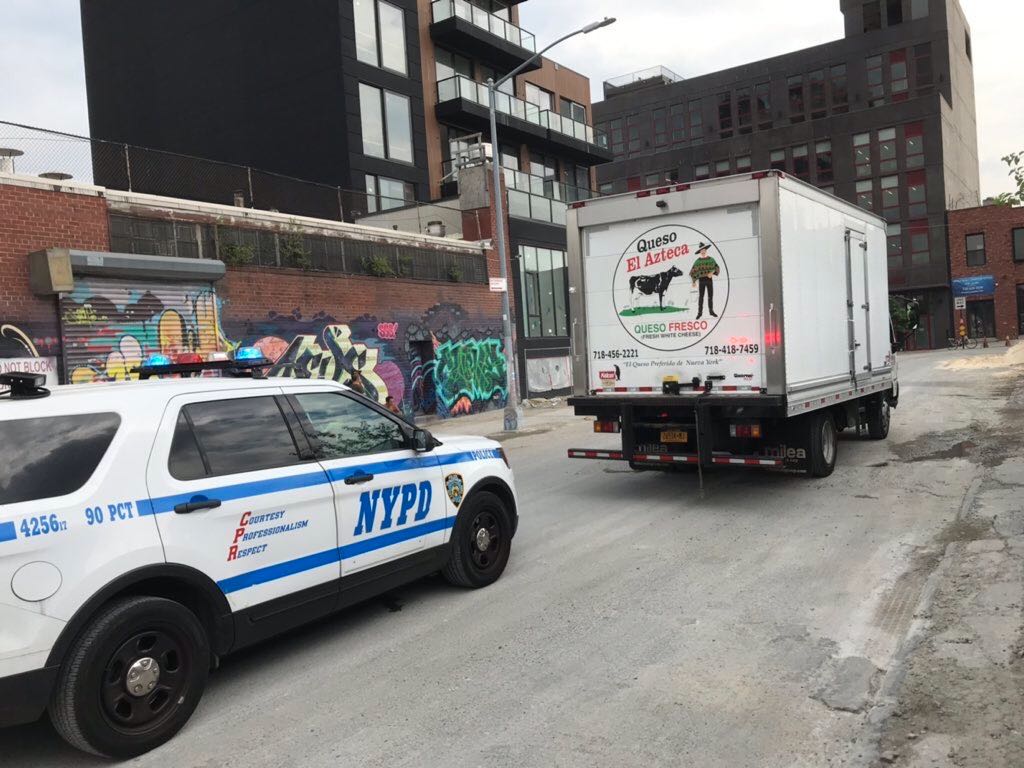
About that reckless driver crackdown...
Earlier this week, the Department of Transportation and the NYPD jointly announced a new enforcement push to make sure the already bloody 2019 didn't end with even more carnage, as years often do because of increased darkness, drunkenness and deliveries.
But there's one problem: The enforcement effort by NYPD officers is virtually non-existent.

Certainly, the DOT announced on Monday several key improvements that will save lives: more speed cameras will be installed in 2020 than in any prior year, and the speed limit on Third Avenue and Hamilton Avenue — both terribly dangerous strips through Brooklyn — will be reduced to 25 miles per hour.
But the agency's "Vision Zero" partners in the NYPD have once again failed to answer the call of safety in a year on pace for an 8-percent rise in overall road deaths, and a triple-digit percentage increase in cyclist fatalities. In a statement, DOT said, "NYPD will be expanding their enforcement efforts to ensure the streets are safe for pedestrians, cyclists and drivers."
We asked new Transportation Bureau Chief William Morris what that meant, and he said officers would continue a crackdown that began on Nov. 1 and continued through Dec. 18.
During that time, Morris said, NYPD officers:
- Wrote 14,393 failure-to-yield tickets, up roughly 90 percent from the same period last year.
- Wrote 18,913 speeding tickets, roughly the same as last year.
- Wrote 284 tickets for blocking a bike lane, up nearly 300 percent from last year.
Those numbers sound like the NYPD is taking road safety seriously.
Seriously?!
Let's break down that 48-day crackdown across the city's 77 precincts:
- The 14,393 failure-to-yield tickets represents fewer than four tickets per day per precinct.
- The 18,913 speeding tickets represents roughly five tickets per day per precinct.
- And the 284 blocked bike lane tickets represents ... a joke. It's less than one-tenth of a ticket per day per precinct. It literally means that the NYPD would have to write 13 times more blocked bike lane tickets just to get up to an average of one ticket per day per precinct.
Streetsblog greeted Morris on his 11th day on the job with the point-blank assessment that the numbers suggest the NYPD's crackdown is "hardly very serious," and he offered this answer:
"Summonses are part of the strategy," he said. "We’ll take a look at it. This is about driver behavior and keeping pedestrians and cyclists safe. It’s not about summonses for summonses [sake]. It’s designed to address conditions."
Morris and the DOT also offered a vague promises of increased enforcement against truck drivers, though he gave no details beyond offering some statistics from an "enforcement effort" between Dec. 24 and Dec. 26: "For the weekend, we did a safety initiative and inspected 213 trucks," he said. "There were 385 moving violations and over 1,000 summonses. We placed eight vehicles out of service."
Again, that sounds like the NYPD is taking road safety seriously.
Seriously?!
According to the DOT, 125,621 trucks enter Manhattan and 73,583 enter Brooklyn every day. Inspecting 213 trucks is hardly a significant crackdown against the operators of large vehicles — who were responsible for more than half of the six pedestrian deaths and the one cyclist death that directly preceded Monday's announcement.
This is not the first time Streetsblog has called out the NYPD for particularly short-reaching crackdown efforts. During a three-week "Bicycle Safe Passage Initiative" blitz over the summer, the Police Department boasted of writing fewer than two failure to yield summonses per precinct per day. And earlier this year, we reported that from January to September, NYPD officers wrote just 1,334 moving violations to drivers in bike lanes — just .4 bike lane tickets per precinct per day.
Activists agree that the NYPD's enforcement effort is paltry, which is why groups like Transportation Alternatives and Bike New York keep the pressure on the DOT to improve the roads with more protected bike lanes and reduce the places cars can go rather than hope that the NYPD will bring about an era of safer streets.
“We’ve focused on the DOT elements of 'Green Wave' [plan] since it was released in July because traffic enforcement ‘crackdowns’ are usually ephemeral, slow, off the mark or purely rhetorical,” said Jon Orcutt of Bike New York.
Morris's office did not respond to a request for comment.






